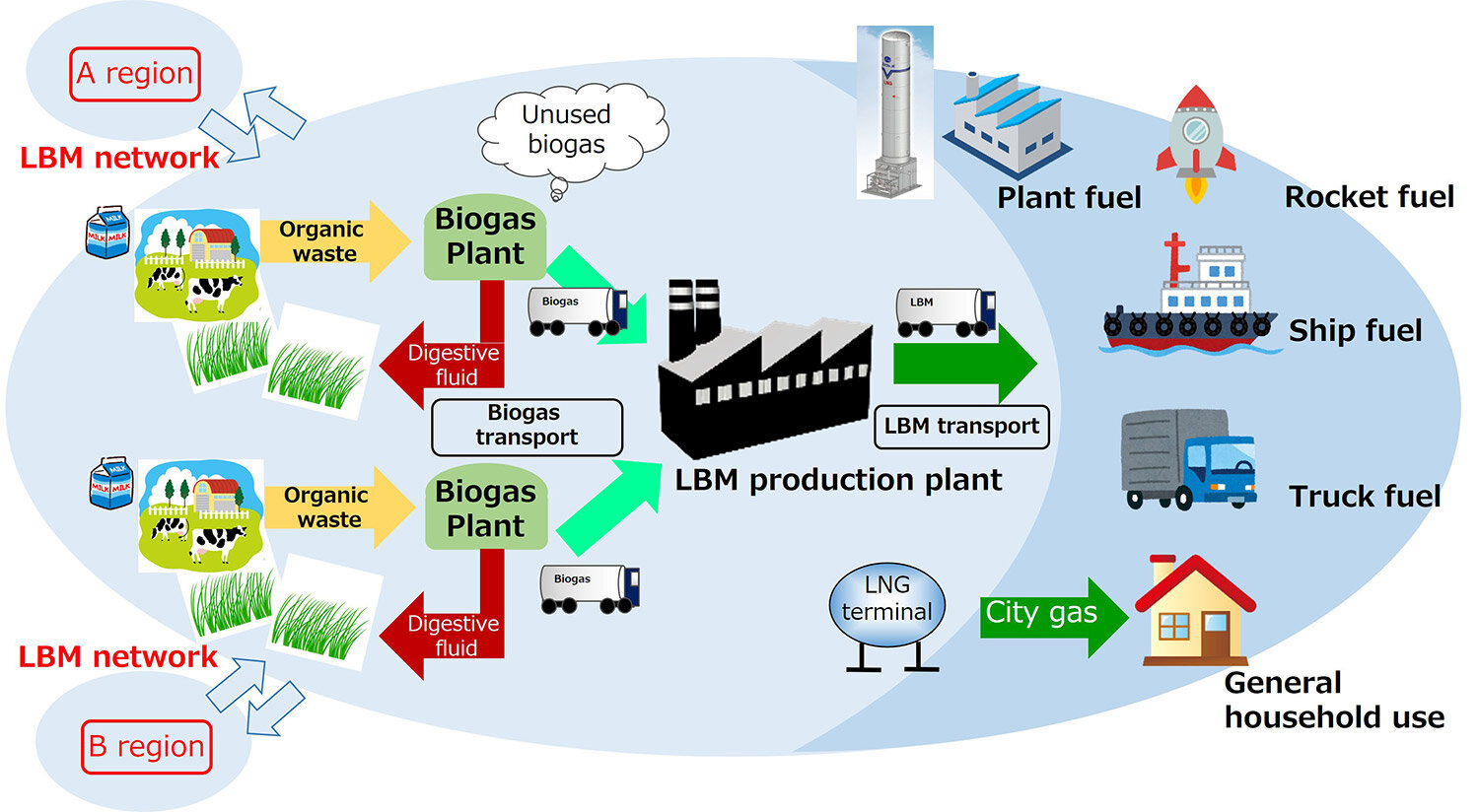A group of seven companies today announced the completion of a successful the trial using liquified bio-methane derived from cattle manure as marine fuel on the domestic LNG fueled vessel Ise Mirai in Ise Bay. This marks Japan's first use of carbon-neutral LBM derived from biomass.
A group of seven companies today announced the completion of a successful the trial using liquified bio-methane derived from cattle manure as marine fuel on the domestic LNG fueled vessel Ise Mirai in Ise Bay. This marks Japan's first use of carbon-neutral LBM derived from biomass.

The trial was conducted based on a memorandum of understanding (MoU) signed between MOL and Air Water in February 2023, with the cooperation of other parties involved, as follows:
In the trial, Air Water supplied LBM produced from cattle manure in the Tokachi region of Hokkaido as part of a technology development and demonstration project adopted by Japan's Ministry of the Environment. All the parties involved confirmed the following through ocean transport of JERA's cargo.

LNG fuel is expected to reduce carbon dioxide (CO2) emissions by about 25% compared to conventional fuel oil, but further reduction of CO2 emissions can be expected through the partial use of LBM, a carbon-neutral energy source. In addition, because the main component of both LBM and LNG is methane, the existing LNG supply chains can be used, so LBM can be an effective solution to achieve low-carbon and decarbonized ship operations.
MOL and Air Water will continually contribute to the development of low-carbon and decarbonized ocean transport by leveraging each other's knowledge and experience in the use of LBM as marine fuel.